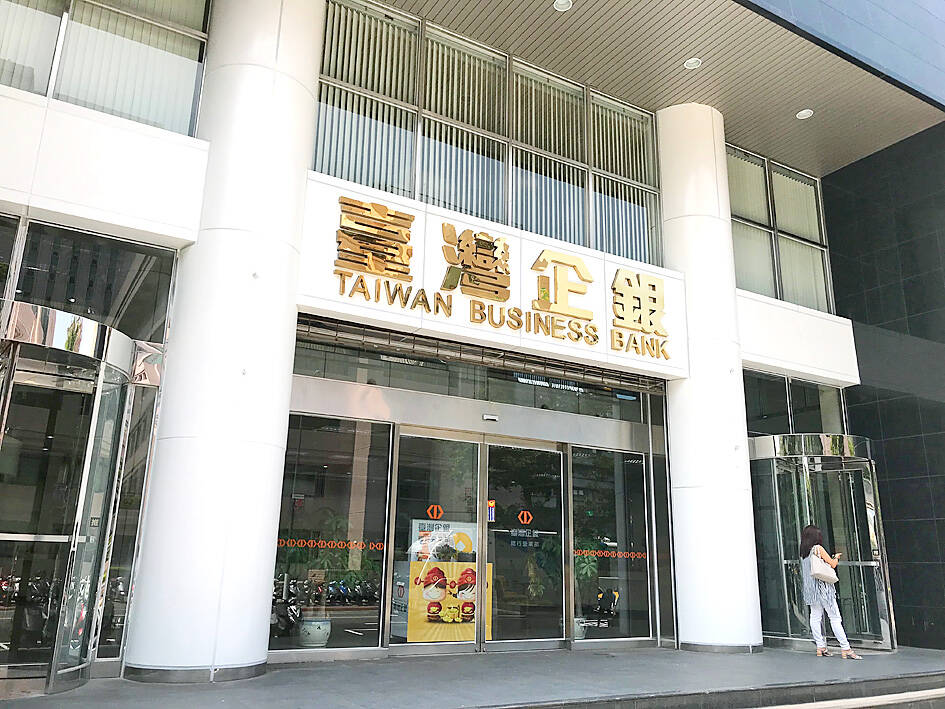The number of government-invested financial institutions that have adopted the “Equator Principles” rose to nine on Friday with the addition of Taiwan Business Bank (臺灣中小企業銀行), the Ministry of Finance said.
The principles were introduced in the US in 2003 to assess the risks associated with large project financing, National Treasury Administration Deputy Director-General Yen Chun-lan (顏春蘭) said.
They serve as a common baseline and risk management framework for financial institutions to identify, assess and manage environmental and social risks when assessing loan applications for large infrastructure and industrial projects, as such ventures could adversely affect people and the environment, the association said.

Photo: Chen Mei-ying, Taipei Times
Each member of the association is known as an Equator Principles Financial Institution, and must follow 10 guidelines to assess social and environmental risks, it said.
These include each institution’s environmental and social management system and the Equator Principles action plan, which includes stakeholder engagement, a grievance mechanism, independent review, independent monitoring and reporting, and reporting and transparency to provide a minimum standard for due diligence.
The nation’s first government-invested financial institution to join the association was First Commercial Bank (第一商業銀行), which became a member in December 2020. It was followed by Mega International Commercial Bank (兆豐國際商業銀行) and Taiwan Cooperative Financial Holding Co (合作金庫金控), which joined in August last year and March respectively, the ministry said.
The other members, which all joined this year, are the Export-Import Bank of the ROC (中國輸出入銀行), Changhwa Commercial Bank (彰化商業銀行), Bank of Taiwan (臺灣銀行), Land Bank of Taiwan (臺灣土地銀行) and Hua Nan Commercial Bank (華南商業銀行), the ministry said.
The firms also observe environmental, social and corporate governance criteria, along with corporate social responsibility policies, Yen said, adding that they have established their own committees to facilitate corporate sustainability.

Semiconductor business between Taiwan and the US is a “win-win” model for both sides given the high level of complementarity, the government said yesterday responding to tariff threats from US President Donald Trump. Home to the world’s largest contract chipmaker, Taiwan Semiconductor Manufacturing Co (TSMC, 台積電), Taiwan is a key link in the global technology supply chain for companies such as Apple Inc and Nvidia Corp. Trump said on Monday he plans to impose tariffs on imported chips, pharmaceuticals and steel in an effort to get the producers to make them in the US. “Taiwan and the US semiconductor and other technology industries

SMALL AND EFFICIENT: The Chinese AI app’s initial success has spurred worries in the US that its tech giants’ massive AI spending needs re-evaluation, a market strategist said Chinese artificial intelligence (AI) start-up DeepSeek’s (深度求索) eponymous AI assistant rocketed to the top of Apple Inc’s iPhone download charts, stirring doubts in Silicon Valley about the strength of the US’ technological dominance. The app’s underlying AI model is widely seen as competitive with OpenAI and Meta Platforms Inc’s latest. Its claim that it cost much less to train and develop triggered share moves across Asia’s supply chain. Chinese tech firms linked to DeepSeek, such as Iflytek Co (科大訊飛), surged yesterday, while chipmaking tool makers like Advantest Corp slumped on the potential threat to demand for Nvidia Corp’s AI accelerators. US stock

The US Federal Reserve is expected to announce a pause in rate cuts on Wednesday, as policymakers look to continue tackling inflation under close and vocal scrutiny from US President Donald Trump. The Fed cut its key lending rate by a full percentage point in the final four months of last year and indicated it would move more cautiously going forward amid an uptick in inflation away from its long-term target of 2 percent. “I think they will do nothing, and I think they should do nothing,” Federal Reserve Bank of St Louis former president Jim Bullard said. “I think the

Cryptocurrencies gave a lukewarm reception to US President Donald Trump’s first policy moves on digital assets, notching small gains after he commissioned a report on regulation and a crypto reserve. Bitcoin has been broadly steady since Trump took office on Monday and was trading at about US$105,000 yesterday as some of the euphoria around a hoped-for revolution in cryptocurrency regulation ebbed. Smaller cryptocurrency ether has likewise had a fairly steady week, although was up 5 percent in the Asia day to US$3,420. Bitcoin had been one of the most spectacular “Trump trades” in financial markets, gaining 50 percent to break above US$100,000 and